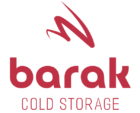Processing
Barak Cold Storage offers a diverse of services to the agricultural and food processing sector. Our aim is to empower farmers to turn fresh foods into food products. This can involve one or a combination of the following: washing, sorting, drying, slicing, crushing, packaging and many more.
Food processing also includes adding components to food, for example to extend shelf life, or adding vitamins and minerals to improve the nutritional quality of the food (fortification).
We process locally sourced ginger (adarak), turmeric (haldee), chilli (mirch) to meet customer demands throughout the year.
We also offer a suite of supply chain monitoring solutions including temperature monitoring technology that can include tracking and reporting. This allows our system to contact you when anything goes wrong and inform you of it by text or e-mail.
Makes food edible
Grain crops, for example wheat and corn, are not edible in their natural state. Processing techniques, such as milling and grinding, turn them into flour, after which they can be made into breads, cereals, pasta and other edible grain-based products. There are 3 types of flours depending on the processing level, choose wholegrain when possible.
Safety, shelf life, and preservation
Processing improves or even ensures food safety by removing harmful microorganisms. The main methods are pasteurisation, air-tight packaging, and the use of preservatives.
Nutritional quality
Food processing can affect the nutritional quality of foods in both ways: it can enhance it, for instance by adding components that were not present, like vitamin D (through ‘fortification’), or by lowering fat, salt or sugar. It can also cause some fibre and vitamins and minerals to be lost, for example through excessive refining, heating or freezing.
Convenience
Processing and packaging technologies help to answer modern day time-constraints by providing a range of convenient foods: ready meals, bagged, sliced and canned fruits and vegetables that take little time to prepare and can be consumed “on the go”.
Price
Food processing can decrease the cost of foods. For example, frozen vegetables have a similar nutritional value as fresh ones, but at a lower price, as they have already been prepared, do not contain inedible parts, can be bought in bulk, and can last longer. This way, processing increases the shelf life of food, and decreases the amount of waste, reducing thereby the overall costs of food production.
- Washing
- Sorting
- Blancing
- Cooling
- Slicing
- Crushing
- Pre-heating / Pasteurising
- Filling & Packaging
